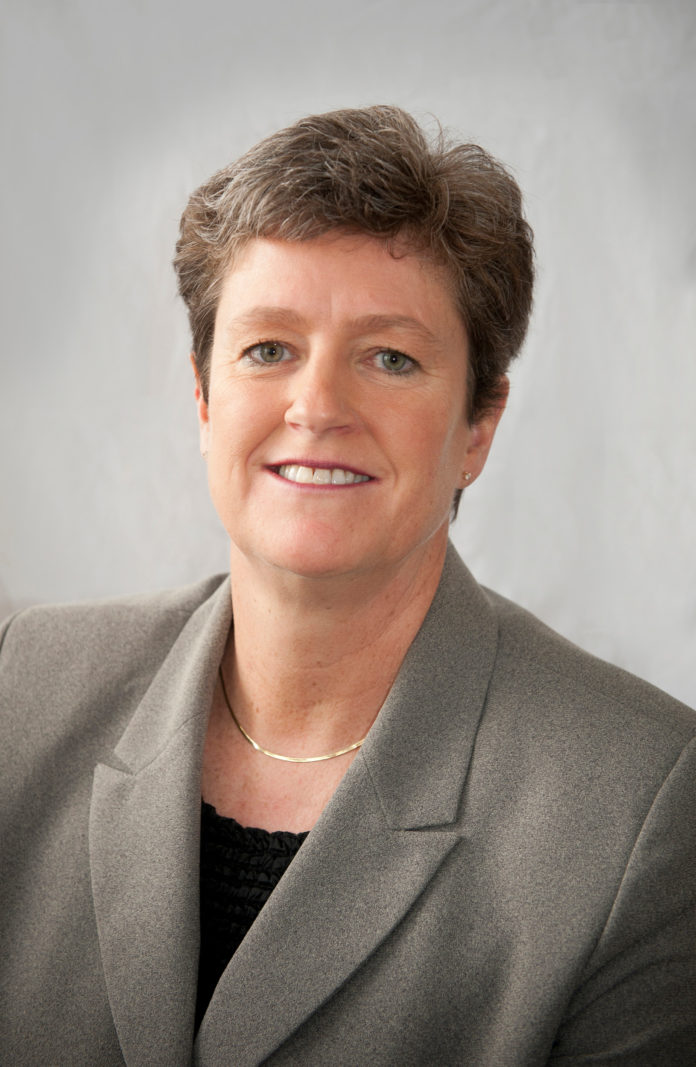
Ellen Ford is president and CEO of Middletown-based People’s Credit Union. She recently traveled with a group of colleagues to meet with U.S. Sen. Sheldon Whitehouse in Washington, D.C., to discuss a recently introduced piece of legislation, called The Small Business Lending Enhancement Act, which would increase credit union’s lending cap to 27.7 percent of its total assets.
Raising the cap has been the subject of much disagreement between community banks and credit unions. The cap currently stands at 12.25 percent.
Ford talks with Providence Business News about what increasing the lending cap could mean for Rhode Island.
PBN: Under current law, credit unions are allowed to lend up to 12.25 percent of its assets, which is a lending cap U.S. Sen. Sheldon Whitehouse has called “arbitrary.” Do you agree with the senator?
FORD: Since 1998, under the Federal Credit Union Act, credit unions have been subject to a statutory cap on business lending of 12.25 percent of the credit union’s total assets. I agree that the 12.25 percent cap was an arbitrary limit set in 1998 and is arbitrary as it has no relation to lending risk, concentration risk or the individual credit union’s balance sheet.
PBN: Whitehouse has introduced a bill that would raise the credit union lending cap to 27.5 percent of total assets. Is that a realistic amount for Rhode Island credit unions given the current loan demand in the state?
FORD: I believe that it is realistic as it was determined by the U.S. Treasury Department after evaluating the safety and soundness of the credit union system. Additionally, increasing the limit would provide flexibility in strategic planning and serving the needs of our small business members. If the cap is increased to the proposed 27.5 precent, it is estimated that Rhode Island credit unions would have approximately $132 million immediately available as [capital to to small businesses], which are estimated to provide approximately 1,439 new jobs. More importantly, these dollars represent a significant and immediate economic stimulus that does not cost the taxpayers and does not expand the size of government.
PBN: The American Bankers Association has said, “Given [National Credit Union Administration’s] and credit unions’ lack of expertise in business lending, it remains unclear whether this highly controversial bill is necessary or wise.” What is your response to this characterization of credit unions and what would you say to other bank leaders who oppose raising the lending cap for credit unions?
FORD: Credit unions have been providing small business loans for over a century, with the first member business loan written in 1912 by a credit union right here in New England. As for People’s Credit Union, we have been providing loans to small business members for decades, well before the cap was imposed in 1998. In general, credit unions are making smaller business loans. In Rhode Island, the average credit union member business loan is $241,665, with a credit union market share of 8 percent. We maintain strong policies and procedures to mitigate risk, and maintain a strong education program for staff. Additionally, these policies and procedures along with underwriting practices are subject to a rigorous annual examination process.
PBN: Should this legislation fail to garner traction in Congress, are there other ways in which the lending cap could be increased?
FORD: Yes. For credit unions, one-to-four family non-owner occupied residential dwellings are considered business loans and are subject to the member business lending cap. Credit unions are the only financial institution subject to that definition. In Rhode Island we have a significant number of one-to-four family non-owner occupied properties. At People’s Credit Union approximately 21 percent of our member business loans are one-to-four family non-owner occupied dwellings. Classifying these loans as business loans subject to the cap limits [limits] available funds to other small business members. To address this, there has been another bill introduced – the Credit Union Residential Loan Parity Act which would create parity with all other financial institutions in not defining one-to-four family non-owner occupied residential dwellings as a member business loan.
PBN: What affect does the lending cap have on Rhode Island credit unions and what would happen if it weren’t raised at all?
FORD: At People’s Credit Union we are currently approaching the 12.25 percent cap. This impacts our members in many ways. With each small business loan request we not only evaluate the credit worthiness of the request, we also need to make a strategic decision to approve the loan or pass due to the limited funds available. This leads to member confusion as to why they may be denied a loan request when they do their personal banking with us. I know there are several other Rhode Island credit unions in the same position and dealing with the same issues. Also, with the 12.25 percent cap, growth in the member business lending space is limited. This may result in credit unions evaluating whether maintaining a member business lending program with minimal growth opportunities is an appropriate business strategy.











